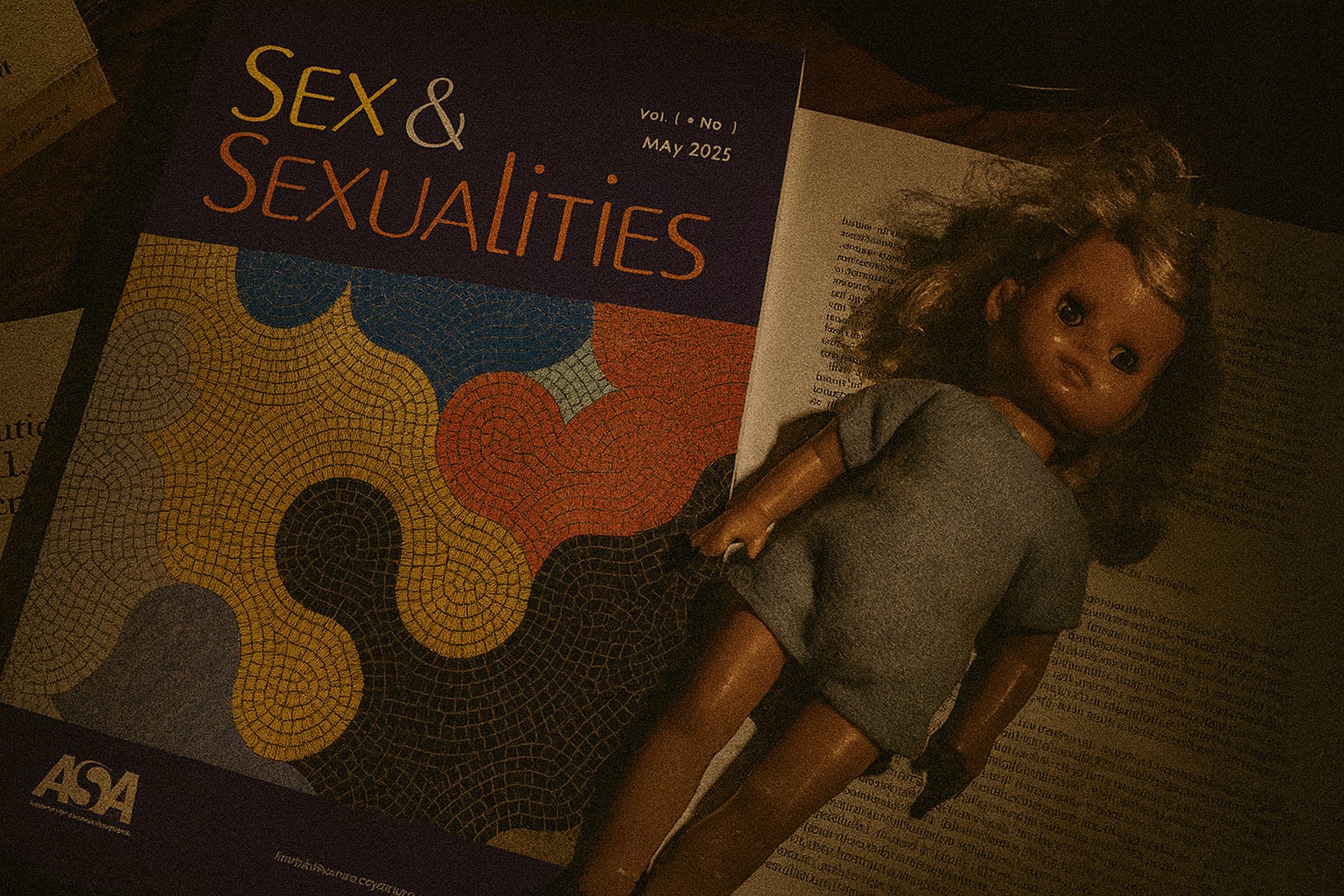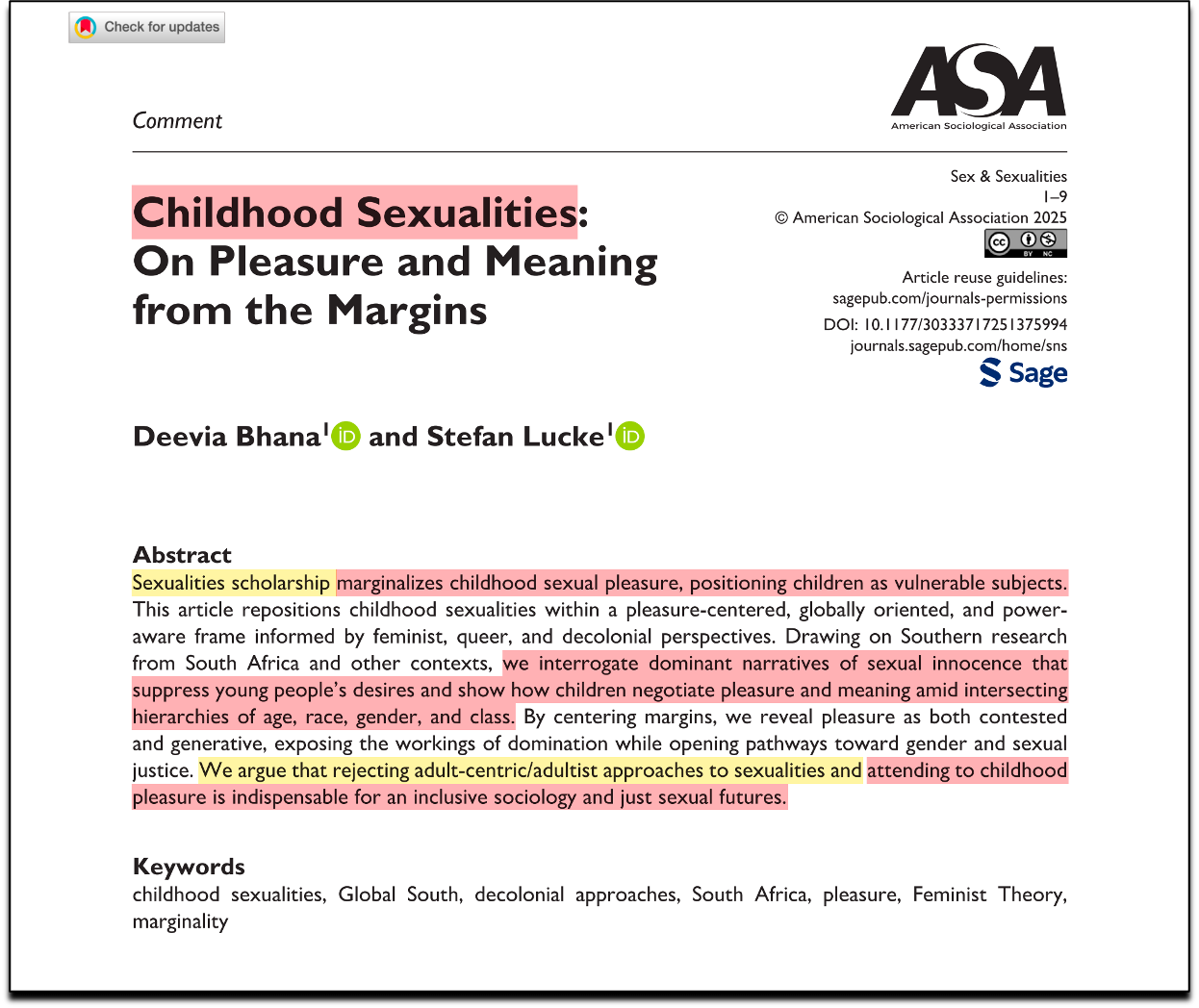Sociology Journals Are Normalizing the Sexualization of Children
A new peer-reviewed paper argues childhood innocence is a “colonial fiction” and urges us to see children as sexual beings.
Reality’s Last Stand is a reader-supported publication. Please consider becoming a paying subscriber or making a one-time or recurring donation to show your support.
About the Author
Dr. Colin Wright is an evolutionary biology PhD, Manhattan Institute Fellow, and CEO/Editor-in-Chief of Reality’s Last Stand. His writing has appeared in The Wall Street Journal, The Times, the New York Post, Newsweek, City Journal, Quillette, Queer Majority, and other major news outlets and peer-reviewed journals.
Academic publishing has always produced its share of eccentric ideas, but some areas of Social Justice scholarship have gone far beyond eccentricity. Many of these papers seem less like genuine research and more like opportunities for authors to dress up personal fetishes in academic jargon. Some are comical, like papers on “ecosexuality,” in which scholars eroticize nature and describe sexual encounters with trees, lakes, or even the Earth itself. But a disturbing subset takes their fringe sexual impulses into disturbing and even dangerous territory. One paper, titled “Queering Babies” and published in a Springer Nature journal, explicitly sexualized infants. Another argued that we should rethink what counts as a “normal fetal outcome” so that trans-identified women (i.e., “trans men”) could continue injecting high doses of testosterone during pregnancy. These are not harmless thought experiments, but attempts to dismantle the basic ethical boundaries that protect the most vulnerable.
A new paper in the American Sociological Association’s journal Sex & Sexualities goes even further. Titled “Childhood Sexualities: On Pleasure and Meaning from the Margins” and authored by Deevia Bhana, the South African Research Chair at the University of KwaZulu-Natal, and Stefan Lucke, a postdoctoral researcher under Bhana, the piece calls for nothing less than the elimination of the idea of childhood sexual innocence and the ethical taboos against children engaging in sex acts.
The authors lament that most scholarship “marginalizes childhood sexual pleasure” and views children as “vulnerable subjects.” They argue that we must “interrogate dominant narratives of sexual innocence that suppress young people’s desires” and instead recognize how children “negotiate pleasure and meaning amid intersecting hierarchies of age, race, gender, and class.” They reject what they call “adult-centric/adultist approaches to sexualities” and insist that “childhood pleasure is indispensable for an inclusive sociology and just sexual futures.”
It is hard to read this as anything other than laying the intellectual groundwork for dismantling age-of-consent protections.







